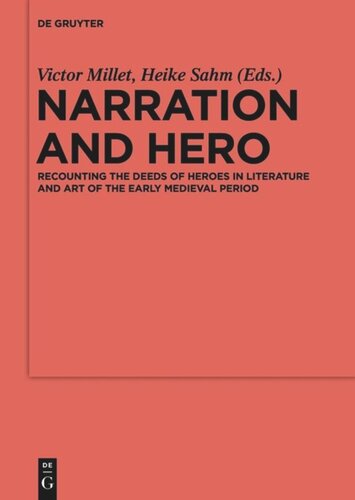

Most ebook files are in PDF format, so you can easily read them using various software such as Foxit Reader or directly on the Google Chrome browser.
Some ebook files are released by publishers in other formats such as .awz, .mobi, .epub, .fb2, etc. You may need to install specific software to read these formats on mobile/PC, such as Calibre.
Please read the tutorial at this link: https://ebookbell.com/faq
We offer FREE conversion to the popular formats you request; however, this may take some time. Therefore, right after payment, please email us, and we will try to provide the service as quickly as possible.
For some exceptional file formats or broken links (if any), please refrain from opening any disputes. Instead, email us first, and we will try to assist within a maximum of 6 hours.
EbookBell Team

4.1
60 reviewsBy the early middle ages vernacular aristocratic traditions of heroic narration were firmly established in Western and Northern Europe. Although there are regional, linguistic and formal differences, one can observe a number of similarities. Oral literature disseminates a range of themes that are shared by narratives in most parts of the continent. In all the European regions, this tradition of heroic narration came into contact with Christianity, which led to modifications. Similar processes of adaptation and transformation can be traced everywhere in this field of early European vernacular narrative. But with the increasing specialization of academic fields over the last half century, inter-disciplinary dialogue has become increasingly difficult. The volume is a contribution to renew the inter-disciplinary dialogue about common themes, topics and motifs in Nordic, Roman, Anglo-Saxon and Germanic literature, and about the different methodologies to explore them.